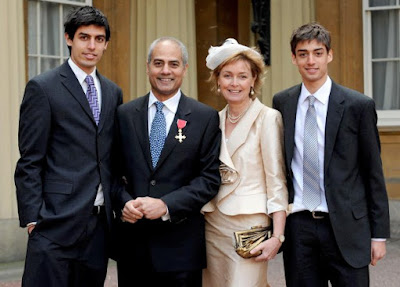My cancer would have been detected earlier in Scotland - BBC George Alagiah
BBC newsreader George Alagiah said his advanced bowel cancer woulds have been detected earlier in Scotland. His stage four progression of the disease means he has only a 10% chance of surviving the next five years, he said. The 62-year-old presenter, who lives in London, discovered the cancer had returned before Christmas. It had spread to his liver and lymph nodes by the time he was initially diagnosed with the disease in 2014 after noticing blood in his stools. He said the cancer was caught ‘very late’ and may have been detected earlier if England had similar screening procedures to Scotland. In Scotland both men and women are automatically offered screening for bowel cancer every two years from 50 years old – yet in England it starts at 60.
The chance of survival for five years or more for those with stage four bowel cancer is less than 10%. However, if it is caught at stage one the chances are near-100% according to Cancer Research UK. Speaking to The Sunday Times, Mr Alagiah said: ‘Had they had screening at 50, like they do in Scotland … I would have been screened at least three times and possibly four by the time I was 58… ‘We know that if you catch bowel cancer early, survival rates are tremendous. I have thought: why have the Scots got it and we don’t?’
The chance of survival for five years or more for those with stage four bowel cancer is less than 10%. However, if it is caught at stage one the chances are near-100% according to Cancer Research UK. Speaking to The Sunday Times, Mr Alagiah said: ‘Had they had screening at 50, like they do in Scotland … I would have been screened at least three times and possibly four by the time I was 58… ‘We know that if you catch bowel cancer early, survival rates are tremendous. I have thought: why have the Scots got it and we don’t?’
 | ||||||
|
The Sri Lankan-born newsreader, who is married
with two sons, then tweeted on Sunday: ‘My cancer was caught late, very late.
‘Earlier screening is the key. Simply no reason why others should have to go
through all the treatment that I’ve had.’ He has endured rounds of chemotherapy
and several operations, including the removal of most of his liver.
In October
2015 he announced his treatment was over and returned to BBC News At Six. Mr Alagiah
told the newspaper he was supporting a campaign by Bowel Cancer UK to make
screening available to everyone in England from 50. The disease kills nearly
16,000 men and women annually in the UK, the charity said. It is the second
most common cause of cancer death in the UK, behind lung cancer. Mr Alagiah
joined the BBC in 1989 and spent many years as one of the corporation’s leading
foreign correspondents before moving to presenting. He has been the face of
News At Six since 2007.
Metro.co.uk




Comments
Post a Comment